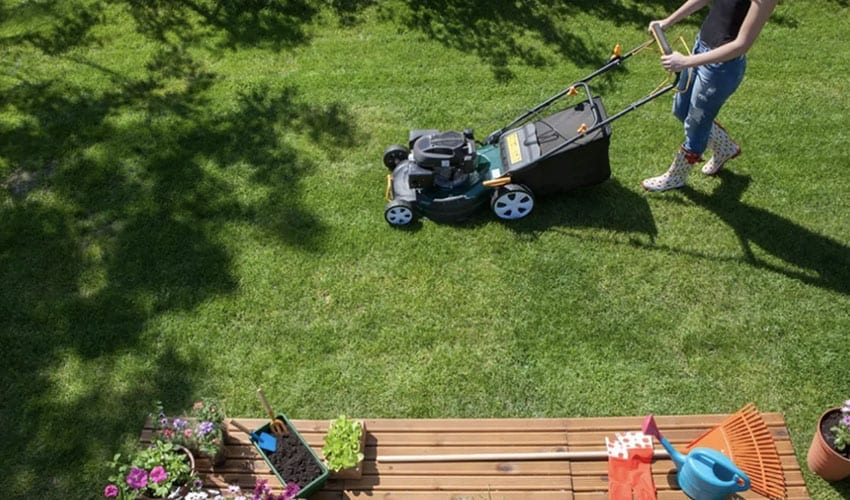
When discussing the responsibilities that come along with renting, both the landlord and the tenant need to be aware of what is required of them and negotiate the duties that each will take upon themselves.
Specifically, lawn care is one aspect that involves substantial resources in terms of money and time. As such, when drafting up the rental agreement—either as a tenant or a landlord—initiate this conversation and determine the best option for your particular situation. Generally, there are three ways to assign the work, each of which defines certain responsibilities for one or both parties:
Self-service lawn care
This first alternative distributes the entire responsibility to the tenant. If this is the option agreed upon, then any aspect related to lawn maintenance is to be resolved by the tenant. From mowing and watering, fertilizing, mulching, and even broader responsibilities like raking leaves or removing snow, the renter is obligated to take care of everything.
Of course, in such cases, there needs to be a mutual understanding—written and agreed to when signing the lease—of these responsibilities, as well as the consequences for not fulfilling said duties. For example, if you’re the landlord and you reach this agreement with the renter, you need to understand that you’ll be liable for any fines from local municipalities or homeowners associations. As such, make sure the tenant understands and is ready to take on such a duty.
Full-service lawn care
The opposite of the first option, full-service lawn care means the landlord handles all maintenance. Many property managers or those who own more than one unit actually hire a professional company to take care of these matters, which ensures high-quality care for the lawn. Despite being an additional cost, it also reduces the risk of fines for improper care.
However, this option leaves an additional responsibility for the landlord: snow removal during the winter. While this task is not always part of the services provided by professional companies, it is, nonetheless, part of the rental agreement. This aspect can also be discussed separately when opting for the full-service lawn care.
À la carte agreements
The happy medium in between the two options is the à la carte agreement. This one splits the responsibilities between the landlord and the tenant to distribute the tasks evenly and according to each party’s resources. Although it seems to be the most equitable option, there is a risk of missing or overlooking certain responsibilities when drafting the contract.
Therefore, it’s a good idea to create a checklist of all of the responsibilities that come with lawn maintenance and go through them together when signing the lease. Most often, the landlord will hire a professional company for a smaller service package—which equates to a lower cost of contracting the service—and the tenant will deal with daily or weekly tasks that require less time and effort.
As always, the best option depends on your unique circumstances. However, by default, the à la carte agreement seems to be the better alternative for delegating responsibilities regarding lawn maintenance in a rental contract—provided they’re distributed accordingly.
About the author: Mihaela Buzec is a passionate reader and writer with an affinity for language and linguistics, as well as the latest technological developments. She discovered her passion for real estate at RENTCafé, and you can read more of her articles on their blog.


